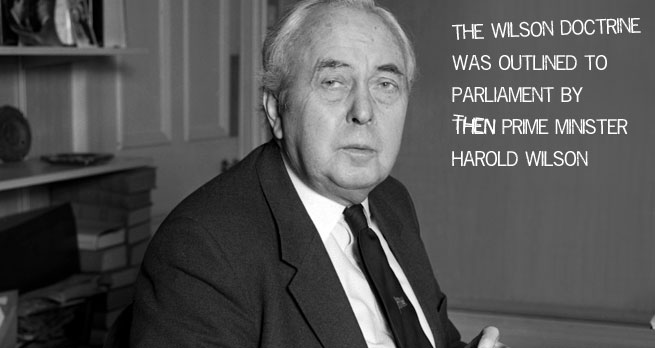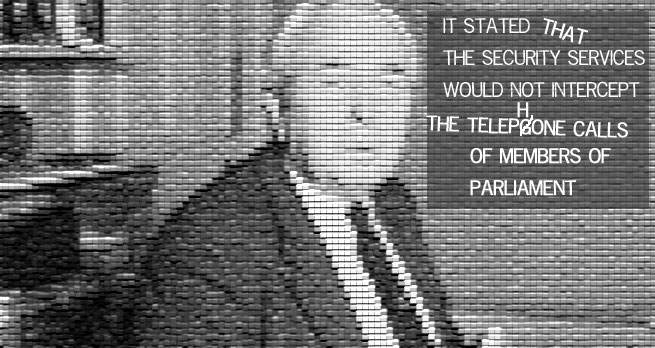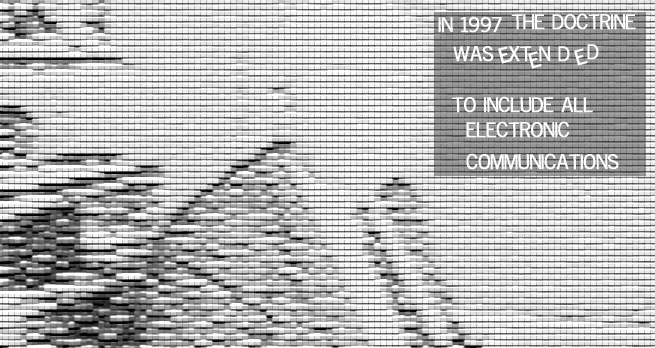


In 1966, alarmed at suggestions that security services were listening in to MPs' phone calls, then Prime Minister Harold Wilson pledged in the House of Commons that this would not happen:
I reviewed the practice when we came to office and decided on balance—and the arguments were very fine— [...] that I should give this instruction that there was to be no tapping of the telephones of Members of Parliament. That was our decision and that is our policy. But if there was any development of a kind which required a change in the general policy, I would, at such moment as seemed compatible with the security of the country, on my own initiative make a statement in the House about it. I am aware of all the considerations which I had to take into account and I felt that it was right to lay down the policy of no tapping of the telephones of Members of Parliament.
This promise - The Wilson Doctrine - was subsequently extended to include members of the House of Lords, and in 1997 Tony Blair stated that it applied to all electonic communications (i.e. email as well).
The doctrine doesn't cover members of other elected bodies - so not Members of the Scottish Parliament, Welsh Assembly or European Parliament. And, crucially, it doesn't prevent other agencies from intercepting communications.
Rate and Review
Rate this article
Review this article
Log into OpenLearn to leave reviews and join in the conversation.
Article reviews